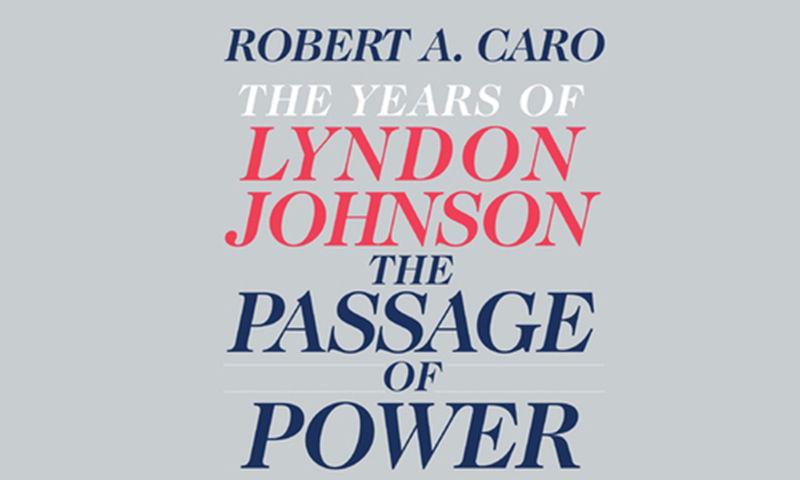As we are reminded daily of rigging allegations in the 2013 elections by Imran Khan, I learned recently that Lyndon Baines Johnson’s early political career was also full of such charges. This American Congressman — later elevated to the Presidency by John Kennedy’s assassination — was not above electoral chicanery to ensure victory.
In fact, politics was all about winning for LBJ. In his long and successful career, this remarkable politician would go to any length to grab and hold power. As Robert Caro informs us in his monumental biography, The Years of Lyndon Johnson: the Passage of Power, LBJ’s guiding motto in life was: “Power is where power goes.” By this he meant that a man like him would attract power wherever he went.
But he was to learn how wrong he was when he accepted the vice presidency under John Kennedy in 1960 after failing in his bid for the Democratic Party’s nomination for the top job. Both the charismatic new president and his brother Bobby made sure LBJ was kept far from any decision-making authority, effectively neutering him.
Caro goes into great detail about the long-running feud between LBJ and Bobby Kennedy. The Kennedys, with their wealth and sophistication, looked down on the Texan with his hick, country-boy manners and his relative lack of education. For over three years as vice president, LBJ was humiliated and belittled, with even low-ranking presidential staff and journalists on the White House beat joining the cruel treatment of one of the most gifted American politicians in history.
The 605-page volume I have just finished is the fifth in Caro’s extended study of LBJ, and he is working on the sixth and last one. While I had heard of this remarkable series from my late brother Salman many years ago, I wondered then if I wanted to invest so much time on LBJ’s life. For many of my generation, his name was associated mostly with the Vietnam War. I still remember that familiar chant: “Hey! Hey! LBJ! How many kids did you kill today?”
Here in St Andrews, on Canada’s eastern maritime province of New Brunswick, my friend Carl Sapers recommended it strongly when I got here three weeks ago. Eyeing the thick tome, I thought to myself that I would flip through it to see what all the fuss was about. Caro’s epic work on LBJ has won just about every award for non-fiction, and has set a new standard for political biographies.
Once I began reading, I was hooked. As the book was too heavy to read in bed, I would sit up each night until I finally finished it, lost in wonder at the width and depth of Caro’s research. The bibliography and source notes at the end alone run to some 60 pages. Fortunately, Caro is gifted with a fluent style that makes him a joy to read.
The basic thrust of Caro’s exploration of a very complex character is that despite all his political skulduggery, LBJ had an amazingly astute political brain that allowed him to push through controversial legislation. Indeed, Caro’s insights into the maze of congressional rules and procedures are rewarding in themselves. Most of us assume that the powers of the American president are virtually unlimited. In fact, the US Constitution places so many checks and balances on the chief executive that it’s a wonder he’s able to act at all.
When LBJ was the Senate Majority Leader for eight years before he became vice president, he made this office the most powerful it had ever been. In fact, many called him the second most powerful man in Washington. Using subtle leverage as well as crude blackmail, LBJ managed to convert ‘no’ into ‘yes’ votes for legislation he was backing.
What outsiders seldom grasp is how powerful committee and sub-committee chairmen are in the US Congress. Even such routine matters as the passage of the annual budget is the subject of many deals and much horse-trading. Kennedy, for all the glamour and glitter of his tragically curtailed presidency, was frustrated by his inability to get his progressive legislation passed.
On being sworn in hours after Kennedy’s assassination on Nov 22, 1963, Johnson realised that his own election chances in the following year would depend on pushing through the Civil Rights Act that had become closely identified with the slain president. But, as Caro describes with a wealth of detail, Harry Byrd, chairman of the Senate Finance Committee, was sitting on the budget, refusing its passage until it was cut to below $100 billion. And until the budget was passed, the Civil Rights Bill was not even going to be discussed, much less voted on.
How LBJ used all his wiles and wisdom to end the logjam is a fascinating study of the use of power. After winning the presidency in his own right in 1964, LBJ went on to have the Voting Right Bill passed, enabling all black Americans to vote. Fifty years later, we forget how crucial these laws have been to American blacks. Earlier, they could not even enter the toilets of restaurants while travelling through many southern states. Their children were barred from white schools, and they were still lynched in the Deep South if they got too ‘uppity’.
LBJ, despite being a Texan, and therefore considered the typical Southern “good ‘ol boy”, pushed through some of the most progressive legislation in American history.
Small wonder that Caro has written about him in such detail.
Published in Dawn, August 18th, 2014










































